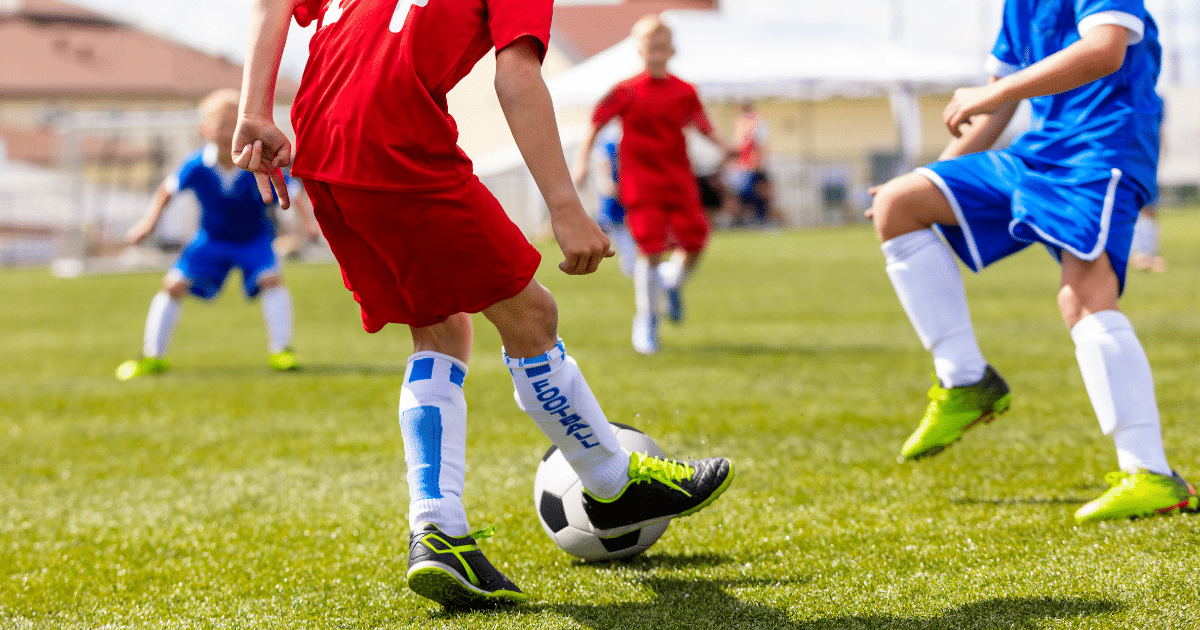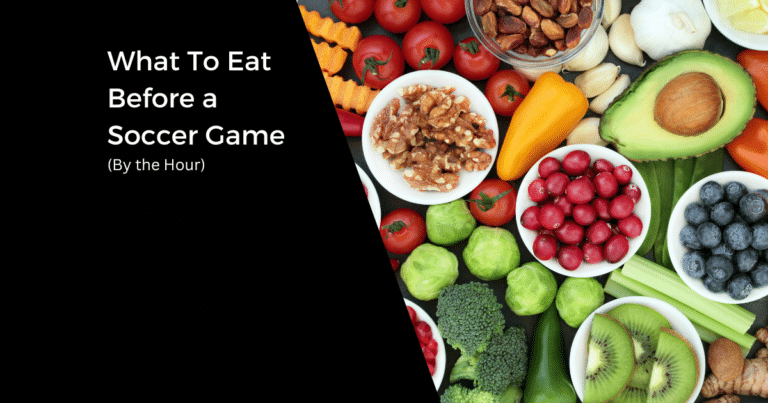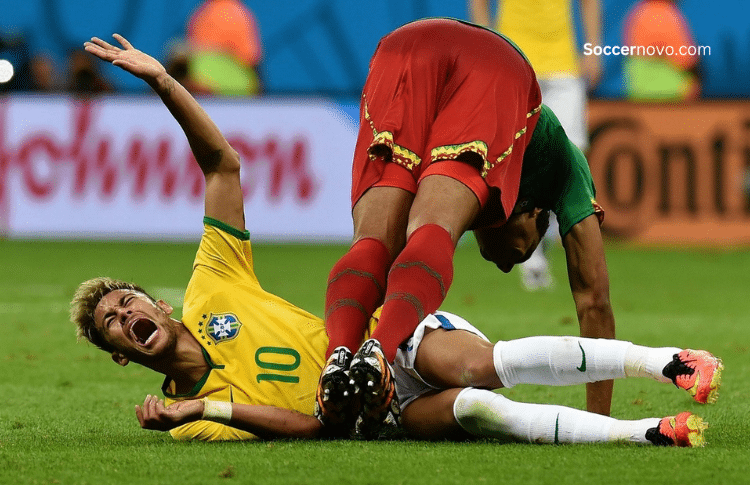5 Nutrition Myths That Soccer Players Should Know
Have you ever felt sluggish during the day and just knew that you were going to play bad? We’ve all been there!
I was there last night at my men’s league game. As I get older, I have finally realized the power of a healthy diet! It only took me 40 years.
Debunking The Following Nutritional Myths:
- Carbs Are Bad
- Protein Supplements Are Necessary
- Prime is Healthy
- Intermittent Fasting is Good Too For Kids
- Cereal is Good For You
Our youth athletes need proper nutrition to fuel their bodies and perform at their best. However, there are many myths and misconceptions about what constitutes a healthy diet for our future generations.
In this article, I will debunk 10 common nutrition myths for youth soccer players, so they can play at their fullest potential! Let’s go…
What Are the Biggest Nutrition Myths?
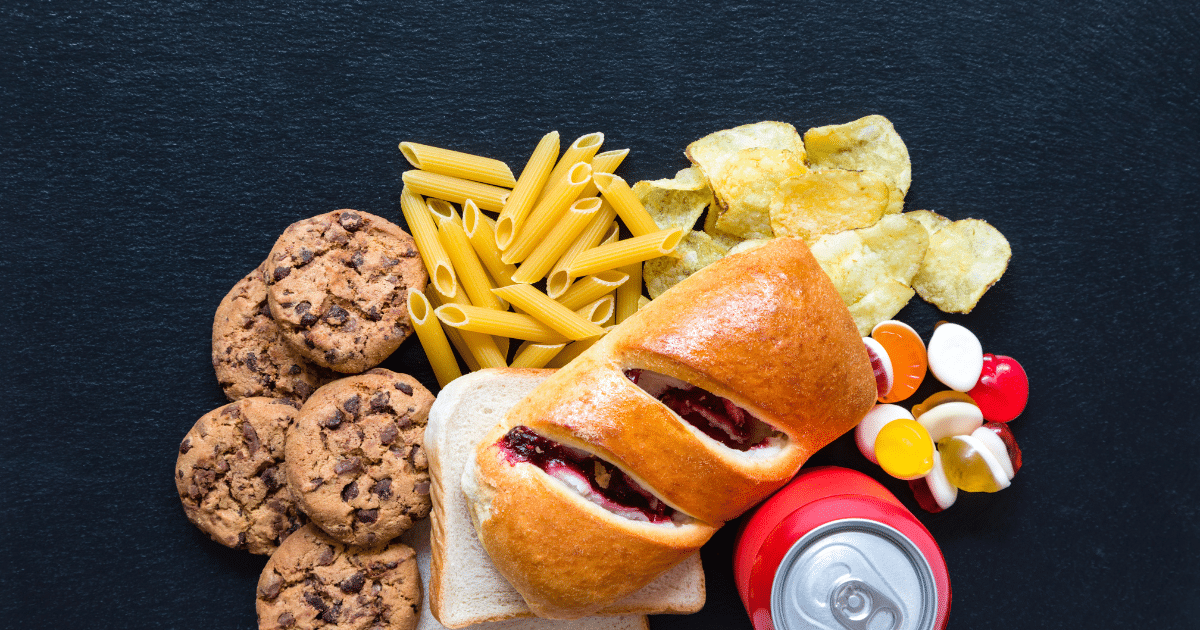
Food and liquids are food for the body. As a busybody, soccer players should make sure they get the right nutrients into their system.
While many foods can give you natural energy, others will leave you feeling like you put on 25 lbs. instantly.
In this section, we’ll debunk some of the most common nutrition myths.
1. Carbs Are Bad for Young Athletes
One of the biggest nutrition myths is that carbs are bad for you. While it’s true that some carbs, like refined sugars, can be harmful in excess, carbohydrates are an important source of energy.
According to the Mayo Clinic, “Carbohydrates are your body’s main source of fuel for activity. Your brain and muscles need carbohydrates to function properly.” Amen!
To ensure you’re getting the right amount of carbs, focus on eating complex carbohydrates like whole grains, fruits, and vegetables. These foods provide sustained energy and are also rich in important vitamins and minerals.
2. Every Athlete Needs Protein Supplements
Many youth athletes believe that they need to take protein supplements to build muscle and improve performance.
However, this is a myth. According to the Faculty of Health and Behavioural Sciences at the University of Queensland, “The majority of young athletes can meet their protein needs through a balanced diet that includes lean meats, poultry, fish, eggs, dairy, beans, and soy products.”
While protein supplements can be helpful for some athletes, they are not necessary for most. Instead, focus on eating a balanced diet that includes a variety of protein sources.
3. Sports Drinks Are Always Healthy
Sports drinks like Gatorade and Prime are marketed as the ideal drink to fuel up for a game.
In reality, water is usually the better option. Sports drinks are often high in sodium, sugar, and calories. Consuming a large amount can be harmful and increase the risk of high blood pressure and cardiovascular disease.
If you have a game or training for more than an hour, a sports drink may be beneficial to help replenish electrolytes and carbohydrates. However, for most young athletes, water is the best choice to stay hydrated during exercise. I recommend you have a combo of both on the sidelines.
4. Kids Should Practice Intermittent Fasting

Intermittent fasting has become a popular choice for many adults. It’s essentially not eating in a certain window of the day so metabolic health and cellular repair processes.
Most adults will eat a large dinner in the evening and not eat again until the next day around noon. You’re only skipping breakfast but the health benefits can be amazing.
Your body doesn’t have to work to digest food in the morning and you’ll feel more energetic. I can’t personally attest it works.
But, kids don’t need to skip ANY meals. They are growing and more active than their parents. Let us do what we do and let them eat as much as they want.
5. Cereal is Healthy
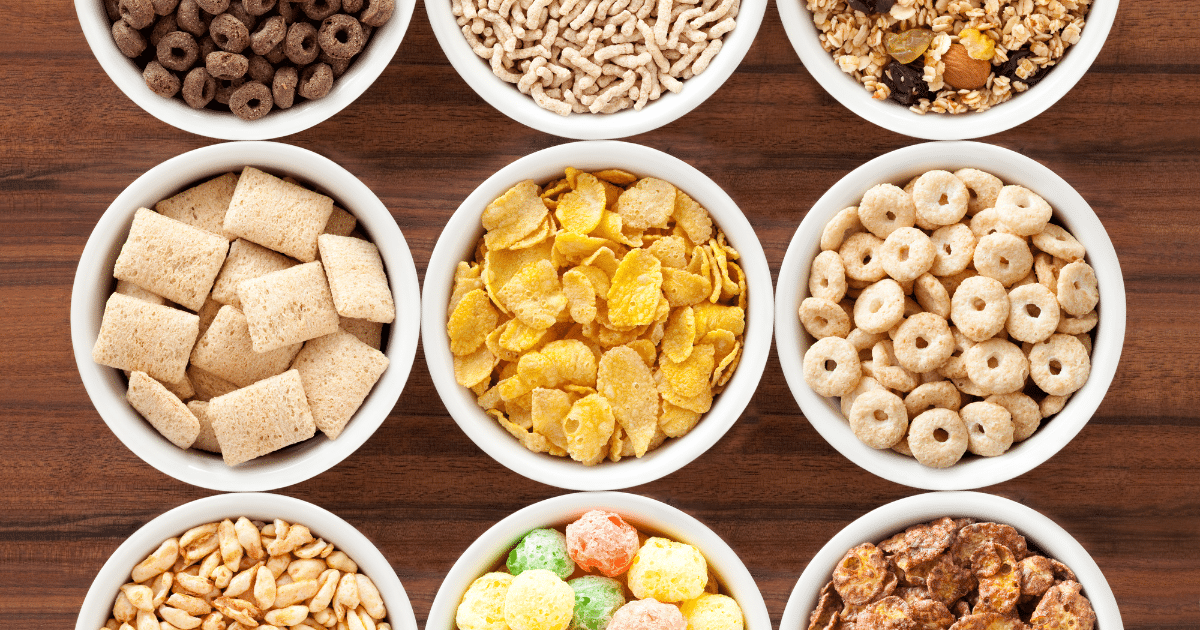
Cereal is convenient. That’s about it.
Most cereals today are loaded with sugar and manufactured ingredients. It is tasty and doesn’t require a stove to make it so it’s a popular option.
Regarding cereal, I don’t think we should deprive our kids but eat it in moderation.
Instead of eating it seven days a week, mix in some eggs and oatmeal. These are much better options!
Conclusion
I don’t know why I felt the need to write this article but I did. I see so many youth soccer players thrown off their game because of their eating habits.
If your child is serious about playing and creating a healthy lifestyle, it’s important to debunk what’s out there. I think if players can comprehend the five myths above, they will be in a better position to create healthier habits this year.
Let me know if you have anything to add!

